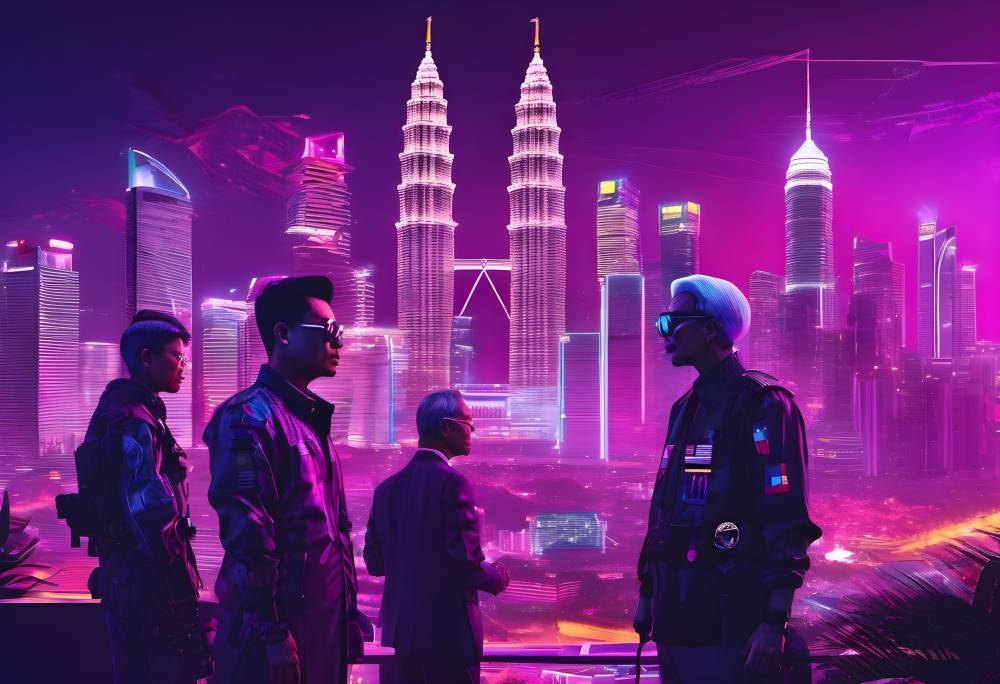Malaysia's Political Landscape in 2024: Divisions, Dilemmas and a Hopeful Vision

The political scene in Malaysia continues to be very similar to that of the year 2004, despite we have entered 2024. The news continues to be dominated by issues of race and religion, and this is true for both traditional and social media channels. Malaysia, which is composed of people of a wide range of racial backgrounds, is impacted by this unfortunate continuity.
The conversation that is taking place in Malaysia about the humanitarian catastrophe in Gaza, for example, has the potential to turn into a racial dispute. Some Malays are concerned as to why other ethnic groups are not emphatically boycotting businesses that they believe have direct or indirect ties to the Israeli government and more notably the Israeli Defence Forces (IDF).
In general, the Malays in Malaysia tend to conflate the Palestinian conflict with an Islamic affair. Evidently, this is not an erroneous understanding.
On the other hand, when the topic of conversation is Islam vs Zionism, how can we expect those who are not Muslims to empathise with us? The situation has become a humanitarian crisis. Settler colonialism is a problem that needs to be addressed. There is evidence of apartheid. The cause of this is fascism. Is this, however, the typical portrayal of the situation to a Malaysian audience? Discord has been fostered in Malaysian society as a result of this atrocity that took place several thousand kilometres away, rather than bringing Malaysians together in support of an international cause. But in the year 2024, is it unusual?
The Prime Minister made a mistake when he used the "k" word in his speech a few weeks ago. Thankfully, he immediately expressed his regret for the mistake that he had made. Despite this, there is no doubt that the government and his coalition have lost some votes among the Indian population as a result of this obvious lack of sensitivity. Examining the conversation that is taking place on social media, it is disheartening to see that there is a widespread lack of empathy on the part of all parties involved. Once again, is this unique going into 2024?
Regrettably, several members of the administration have inadvertently increased the severity of the situation by bringing up issues such as local elections, a possible prime minister who is not Muslim, and the suggestion for a non-Muslim to serve on a commission that is examining the role of the Syariah court. Despite the fact that none of the aforementioned actions violate the law or the constitution, they have provided certain groups with ammo to further create divisiveness in Malaysia. Why should we do that when the political climate in our country is essentially the same as it was several decades ago?
A fraction of Malay political leaders still manages to sow conflict within the Malay community in addition to the significant divisions that exist among diverse racial groupings. One more time, the term "liberal" is used in a political context to denigrate people who have the audacity to hold a viewpoint that is contrary to the majority opinion and to question those in positions of authority. Having the chance to introduce future generations to the glorious history of Islam is something that we extremely value and respect.
However, we failed to add that this time period, which encompassed the Umayyad and early Abbasid periods, was characterised by a great deal of intellectual research and passionate dispute. It's possible that the Malay people could have improved their relationship with one another through increased mutual understanding, intellectual discourse, and knowledge. Instead, there are certain people who are actively interested in creating miscommunication and further splitting people of the same faith.
One final point to consider is that there are speculations going around that a group of Malay leaders are working together to recover power within the course of the current administration's term in office. These so-called leaders are competing for power in Malaysia under the pretext of protecting a specific group, rather than working together within the august body of Parliament to achieve their goals. In the year 2024, politics appear to be the same.
The fact that politicians flourish via divisiveness is something that does not evade me. As a realist, I recognise the validity of this statement. On the other hand, as a Malaysian who is concerned about the future of my children, I cannot help but wish that our leaders were statesmen rather than merely politicians. Politicians divide, but statesmen unite.
A developed Malaysia in which leaders prioritise the true benefit of the people over rhetorical considerations is the kind of Malaysia that I envision. A Malaysia in which individual and collective respect for one another is the foundational principle. An independent and self-assured Malaysia that is undisturbed by differences in opinion. A Malaysia in which every citizen is regarded as a member of the same family.
My hope for Malaysia to become a unified nation in 2024 seems too far-fetched at the dawn of the new year.
Syaza Shukri, PhD, is an associate professor and the current Head at the Department of Political Science, IIUM. The views expressed in this article are the author's own and do not necessarily reflect those of Sinar Daily.
Download Sinar Daily application.Click Here!















